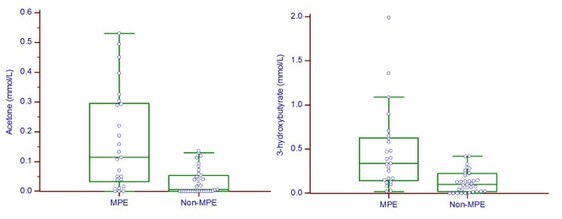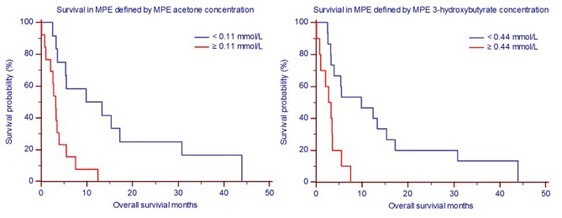New Prognostic and Diagnostic Markers of Malignant Pleural Effusions
- 領域
- Diagnostics
- Reference No.
- IP00578
Key Problem and Market Opportunity
- Malignant pleural effusion (MPE) is a condition in which cancer causes an abnormal amount of fluid to collect between the thin layers of tissue lining the outside of the lung and the wall of the chest cavity. It is most likely to be caused by lung cancer, breast cancer, lymphoma, and leukemia. It is serious condition related with poor quality of life, morbidity and mortality.
- MPE is not an uncommon condition with an estimated annual incidence of 150,000 in United States.
- Conventionally, the diagnosis of MPE relies on biochemical and cytology analysis of the PE, pleural biopsy and diagnostic imaging. However, the process is quite complicated. Until now, there is no suitable prognostic biomarker for MPE.
Key Advantages of the Technology
Acetone and 3-hydroxybutyrate are the two major prognostic markers identified by a 4-year follow up study. PE metabolomes were studied using both NMR based metabolomic profiling and orthogonal partial least squares (OPLS) regression analysis.
- The concentration of the two markers were significantly higher in malignant PE group than the benign PE group.
- High PE acetone and 3-hydroxybutyrate were associated with a more invasive cancer and a poor survival outcome.
Potential Product and Services
- Prognostic and diagnostic biomarkers for MPE
Development status and IP Strength
- US Patent No. 9,804,162
- EP Patent Application No. 16186232.1




